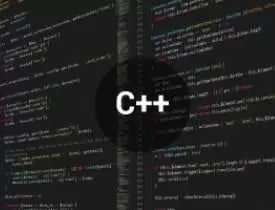Description
Course Name: Certificate in Internet Usage
Course Id: CIU/Q1001.
Education Qualification: 10th Pass.
Duration: 90 Hrs.
How You will Get Diploma Certificate:
Step 1- Select your Course for Certification.
Step 2- Click on Enroll Now.
Step 3- Proceed to Enroll Now.
Step 4- Fill Your Billing Details and Proceed to Pay.
Step 5- You Will be Redirected to Payment Gateway, Pay Course and Exam Fee by Following Options.
Card(Debit/Credit), Wallet, Paytm, Net banking, UPI and Google pay.
Step 6- After Payment You will receive Study Material on your email id.
Step 7- After Completion of Course Study give Online Examination.
Step 8- After Online Examination you will get Diploma Certificate soft copy(Scan Copy) and Hard Copy(Original With Seal and Sign).
Step 9- After Certification you will receive Prospect Job Opportunities as per your Interest Area.
Online Examination Detail:
Duration- 60 minutes.
No. of Questions- 30. (Multiple Choice Questions).
Maximum Marks- 100, Passing Marks- 40%.
There is no negative marking in this module.
Benefits of Certification:
- Government Authorized Assessment Agency Certification.
- Certificate Valid for Lifetime.
- Lifetime Verification of Certificate.
- Free Job Assistance as per your Interest Area.
Syllabus
Certificate in Internet Usage
Equipment required for using Internet
Internet Service Provider (ISP)
World Wide Web (WWW)
Python Specific Data Structures
Web server
HTML (Hyper Text Mark-up Language)
Equipment required for using Internet
What is the Internet? Local Area Network (LAN), Wide area network (WAN), Types of Internet service, Choosing an Internet service provider, Hardware and Software Requirements for Internet connection, Objective, Concept of Internet, Evolution of internet, Basic concepts, Communication on the Internet, Internet Domains, Internet Server Identities, Establishing Connectivity on Internet, Client IP Address, TCP/IP and its Services, Integrated Services Digital Network, Digital Subscriber Line, Satellite Internet Connection, Wireless Internet Connection, Web Server, Web Client, Domain Registration, Summary, Question for Exercise.
Internet Service Provider (ISP)
Internet Access, Domain name registration, Dial-up access, Leased line access, access providers, mailbox provider, Dial-up Connection, Cable TV Internet Connection, Satellite Internet Connection, Wireless Internet Connection, Understanding Internet Service Providers (ISPs), Special Considerations, Examples of Internet Service Providers, Access Network , Distribution Network, Core Network, Introduction and Definitions, Peering and Transit relationships, Exchange Environment Selection Criteria, Exchange Population Issues, European Peering Differences.
World Wide Web (WWW)
What is the web? How Does the Web Work? What’s So Special About the Web? Universal Addressing Scheme, Extensibility, What is the Internet, TCP/IP Protocol Family, Client-Server Computing, Local Area Networks, What is a Network? Physical Infrastructure, Information Flow, Protocols and Layering, Overview, Electronic Mail, FTP (File Transfer), World-Wide Web, Links and Navigation, Hypertext, Browsers, Netscape Navigator Fundamentals.
Python Specific Data Structures
Data Structures Overview, General Data Structures, Liner Data Structures, Non-Liner Data Structures, Binary Tree, Heap, Python Specific Data Structures, Local Environment Setup, Getting Python, Installing Python, Unix and Linux Installation, Windows Installation, Macintosh Installation, Setting up PATH, Setting path at Unix/Linux, Python Environment Variables, Running Python, Integrated Development Environment (IDE).
Web server
Introduction to Web Servers, How Web Servers Work, the Basic Process, The browser broke the URL into three parts, Internet Information Server (IIS), HTTP modules, Security modules, Content modules, Compression modules, Caching modules, Logging and Diagnostics modules, Personal Web Server, How to Install Personal Web Server Starting the Installation, Apache Web Server, Software Complexity, Active and Passive attacks in Information Security.
HTML (Hyper Text Markup Language)
Browser environment is different, Example of HTML – Start with raw content text – Annotate with tags, Browser doesn’t care but programmers do, Example HTML – Browser output, HTML Evolution, Example XHTML document, Basic Syntax rules for XHTML, Example XHTML document structure, XHTML document structure, Common usage XHTML tags, Commonly used tags: section, Newer HTML – HTML5, Another mark-up language: Markdown.







